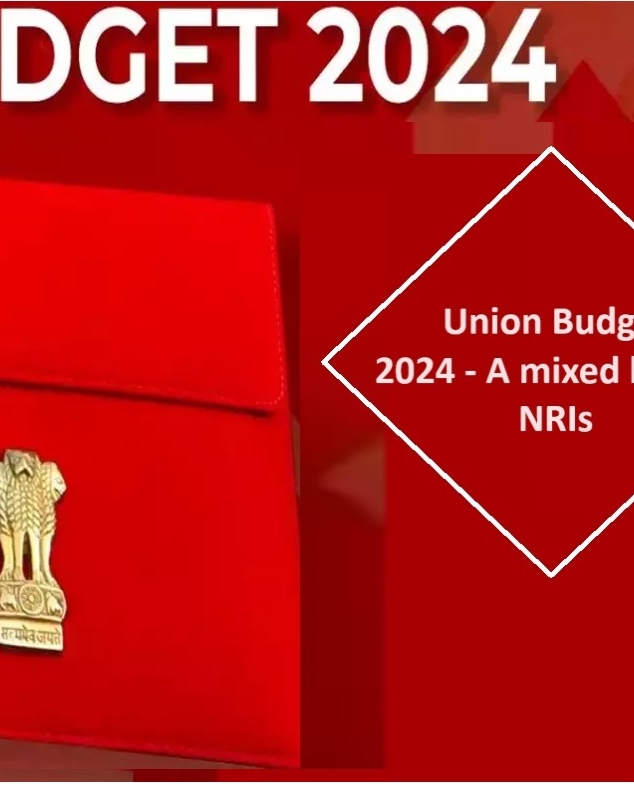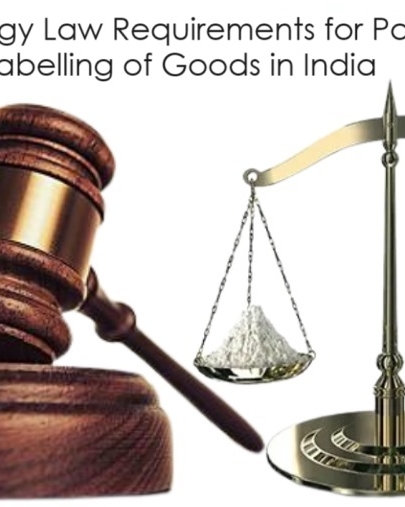Navigating Compliances on Significant Beneficial Ownership by Limited Liability Partnerships.
Authors: Jayshree Chandra, Senior Partner & Nikita Chhabra , Associate at ZEUS Law.
Published in LiveLaw
Ministry of Corporate Affairs (‘MCA’) vide notification dated October 27, 2023 introduced the Limited Liability Amended Partnership (Third Amendment) Rules, 2023 (“LLP Amendment Rules, 2023”) modifying the existing Limited Liability Partnership Rules, 2009 to strengthen the mechanism for identifying individuals having beneficial interest in LLPs. Under the LLP Amendment Rules, 2023 every LLP is responsible to maintain the register of partners in Form 4A, with particulars such as the personal details of partner, date of becoming a partner, date of cessation, amount and nature of contribution and other interests of partner. Further, a declaration needs to be filed by the person whose name is entered in the register of partners, but who does not hold any beneficial interest in the contribution. The LLP Amendment Rules, 2023 also mandate that a declaration shall be filed by the person who acquires or holds beneficial interest in the contribution but whose name is not registered in the register of partners.
MCA has recently notified the Limited Liability Partnership (Significant Beneficial Owners) Rules, 2023 (“LLP SBO Rules”) (November 9, 2023) which lay down the rules and compliances required to be adhered by the reporting LLPs in India with respect of Significant Beneficial Owners (“SBO”). These Rules are issued pursuant to the MCA Notification dated February 11, 2022 under which Section 90 of Companies Act, 2013 (“Act, 2013”) for maintaining register of SBOs was made applicable to the Limited Liability Partnerships (“LLP”).
Typically, LLPs provide limited liability to their partners, meaning that the personal assets of the individuals involved are protected from the business’s liabilities. However, there are situations where the corporate veil may be pierced to hold individuals personally responsible for the LLPs actions or debts. The LLP SBO Rules notified provisions to achieve a similar outcome. The LLP SBO Rules are designed to identify and disclose the SBO of an LLP, who ultimately indirectly control or have significant rights or holding in the LLP. Under the LLP SBO Rules all the existing LLPs would now have to identify and declare their SBO and undertake related compliances.
Key Compliances under the LLP SBO Rules:
- Who qualifies as SBO: An individual who acting alone or together or through one or more persons or trust, has one or more of the following rights:
- holds indirectly or together with any direct holdings, not less than 10% of the contribution in a reporting LLP;
- holds indirectly or together with any direct holdings, not less than 10% of voting rights in respect of management or policy decision;
- has right to receive or participate in not less than 10% of the total distributable profits, or any other distribution through indirect holdings alone or together with any direct holdings; and
- has right to exercise/ actually exercise, significant influence or control, in any manner other than through direct holdings alone.
The LLP SBO Rules have clarified that if an individual does not hold any indirect right or entitlement prescribed then he shall not be considered as an SBO.
- Indirect and Direct Entitlement in the reporting LLP: An individual shall be considered to hold a direct right or entitlement if the contribution in the reporting LLP representing such right or entitlement are held in the name of the individual or if he has made a declaration to the reporting LLP that he holds or acquires a beneficial interest in the contribution of reporting LLP as per Rule 22 B of the LLP Rules.
The various criteria under which an individual shall be considered to hold indirect right in the reporting LLP, vis a vis a partner of a reporting LLP is summarized below:
| Sr. No. | Partner in a reporting LLP | Criteria to hold indirect right or entitlement in the reporting LLP |
| 1. | Body Corporate (whether incorporated or registered in India or abroad) other than an LLP. | An individual who –
i. holds majority stake in that partner; or ii. holds majority stake in the ultimate holding company (whether incorporated or registered in India or abroad) of that partner. |
| 2. | Hindu Undivided Family (HUF) (through Karta) | An individual who is the Karta of the HUF |
| 3. | Partnership Entity (through itself or a partner) | An individual who –
i. is a partner; or ii. holds majority stake in the body corporate, which is a partner of the partnership entity; or iii. holds majority stake in the ultimate holding company of the body corporate, which is a partner of the partnership entity. |
| 4. | Trust (through trustee) | An individual who –
i. is a trustee in case of a discretionary trust or a charitable trust; ii. is a beneficiary in case of a specific trust; or iii. is the author or settlor in case of a revocable trust. |
| 5. | Pooled Investment Vehicle (‘PIV’) or an entity controlled by the PIV, based in a FATF member State of the on Money Laundering, and the regulator of the securities market in such member State is a member of the International Organisation of Securities Commissions. | An individual in relation to the pooled investment vehicle, who –
i. is a general partner; ii. is an investment manager; or iii. is a chief executive officer where the investment manager of such pooled vehicle is a body corporate or a partnership entity.
|
| 6. | PIV or an entity controlled by the PIV, based in a jurisdiction other than mentioned. | An individual fulfilling requirement in any category mentioned above from Sr. No. 1 to 4 as the case may be. |
It is interesting to note that as per the provisions of the Limited Liability Partnership Act, 2008 only individuals and body corporate can become partners in an LLP. Resultantly, there is no possibility of any HUF getting admitted as a partner. The LLP SBO Rules overlook the same.
- Duties of the reporting LLP:
Under the SBO LLP Rules the reporting LLP is required to undertake the following duties:
- To undertake necessary steps to find out and identify the SBO and cause him to make a declaration in the prescribed form. In case where the partners of reporting LLP holds not less than ten percent of its contribution or voting rights or right to distributable profits or any other distribution, the reporting LLP is required to give notice in the prescribed form in accordance with sub-section 5 of section 90 of the Act, 2013 to such partner, seeking the requisite information.
- To file a return with the Registrar within a period of thirty days from receipt of the declaration by SBO.
- To maintain a register of SBOs based on the declaration made by the SBOs.
- To apply to the Tribunal in case a person fails to give the information required by notice within a specified period or where the information provided is unsatisfactory.
- Declaration by SBO: SBO is meant to file a declaration to the reporting LLP within ninety days of the commencement of the Rules, deadline for which is soon approaching. Every individual who subsequently becomes a SBO or whose significant beneficial ownership further undergoes any change has to file a declaration to the reporting LLP within thirty days of acquiring SBO or any change thereto.
- Non-Applicability of the LLP SBO Rules: If the contribution of the reporting LLP is held by (i) the Central Government, State Government or any local authority; (ii) a reporting LLP or a body corporate or entity controlled by the Central Government or by one or more of State Government or either partly by both of them; (iii) an investment vehicle registered with, and regulated by Securities and Exchange Board of India; or (iv) an investment vehicle regulated by Reserve Bank of India, or the Insurance Regulatory and Development Authority of India; or the Pension Fund Regulatory and Development Authority then the LLP SBO Rules will not be applicable.
The growing recognition of the merits of LLP structure over other models has resulted in an increased popularity of LLP structure amongst various businesses. The inclusion of LLPs in regulatory frameworks for the identification and reporting of SBO aligns with existing obligations imposed on companies, indicating a governmental commitment to elevating transparency standards regarding the ultimate beneficial ownership of LLP structures.
(This Article is solely for information purposes, does not constitute legal or professional advisory and should not be relied upon or used as a substitute for legal advice from attorney.)
About the Authors: Jayshree Navin Chandra, Senior Partner at ZEUS Law, has been a practicing lawyer since 2001 with extensive corporate and transactional advisory experience. She advises and represents clients ranging from Fortune 500 companies to start-ups as well as Central and State Government departments and public bodies in a wide range of domestic and cross border transactions, across industries in practice areas including Corporate and Company Law, M&A and Joint Venture, Private Equity, FDI & FII, Real Estate and Infrastructure, Data privacy and protection, Intellectual Property & Commercial Law Advisory.
Ms. Nikita Chhabra is an Associate at ZEUS Law and works in the Corporate and Commercial practice vertical.
ZEUS Law Associates is an ISO certified full service corporate commercial law firm with a team of dedicated and experienced lawyers well versed in handling domestic and cross border transactions across sectors, jurisdictions and regulatory landscapes. The firm’s practice areas include Corporate and Company Law, M&A and Joint Venture, Private Equity, FDI & FII, Real Estate and Infrastructure, Intellectual Property & Commercial Law, Litigation, Alternate Dispute Resolution, Indirect Tax and NRI Services.






















